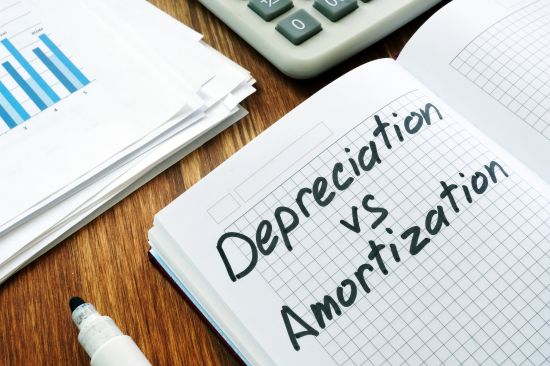The amortization of an asset is a process of paying off the loan or debt by making regular payments. Learn more about the difference between Amortization and Depreciation.
| Amortization | Depreciation |
| Method of paying loan | Method of decline asset value |
| Paying load in a period of time | Count the asset value in a period of time |
What is amortization?
Amortization is a method of repaying a loan or debt.
It’s a way to pay off the loan over time, which allows the borrower to make payments over a longer period of time.
A business can use amortization to pay off its debt.
In the U.S., companies usually use this method for financing new projects and for loans for equipment purchases. Amortization is also used for personal loans, but not all debts are amortized in this manner.
For example, an individual might pay off his car loan in one lump sum or might choose to make monthly payments on his car loan until it is paid off.
Amortization differs from depreciation in that depreciation decreases the value of an asset over time, while amortization does not change the value of an asset at all.
This means that if you had $10,000 in your savings account and you made a $5,000 car purchase with that money and then paid it off over four years using your home equity line of credit (HELOC), you would have $0 remaining in your savings account after those four years even though you had only paid off $5,000 of your purchase price on your HELOC by paying.
What is depreciation?
Depreciation is a method of accounting for the decline in value of an asset over time. Depreciation is an accounting method used by businesses to record the decline in value of an asset.
Depreciation accounts for this decline in value by decreasing the cost basis of the asset over time. Depreciation decreases the amount that a business can expense when it reports its income and reduces the balance sheet account called accumulated depreciation.
Amortization VS Depreciation
Depreciation is a method of accounting for the decline in value of an asset over time. Depreciation is an accounting method used by businesses to record the decline in value of an asset. Depreciation accounts for this decline in value by decreasing the cost basis of the asset over time. Depreciation decreases the amount that a business can expense when it reports its income and reduces the balance sheet account called accumulated depreciation.
The way that depreciation affects your taxes depends on how you use it in your business or personal tax return. The federal government does not tax you on income that you receive from your depreciable assets (like cars, computers, office equipment, and furniture).
However, if you use these assets to earn income for yourself or for someone else (such as renting them out), then you will be taxed on this income at ordinary income tax rates.
When deciding whether to amortize or depreciate an asset, consider how much depreciation you expect to take over the lifetime of the asset and what form of depreciation will give you the most tax benefits. For example, if your business uses capital equipment with a useful life of five years and has been purchased with borrowed money, then it may make sense to write off depending on the capacity that you can pay.







